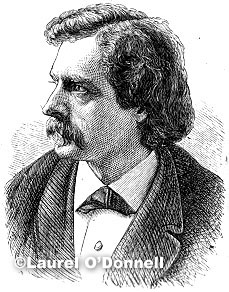|
|
The Metropolitan Newspaper, continued
and fell upon the other side. The City Department was full at that time of clever graduates, who, besides having distinguished themselves at Harvard, Cornell, Yale, Williams, or Brown, had that natural aptitiide for journalism which never so surely manifests itself as in the willingness to subordinate ambition to practicable opportunities. We had with us the poet of the (then) last year's class at Yale, who was doing all sorts of literary drudgery, and who had since advanced to an enviable position in his profession; and the staff included any number of other really able descriptive writers and news-gatherers, who never for a moment considered a reporter's place beneath them.
The old Bohemian element that once sullied metropolitan reporters has been almost entirely cast out. Some of the beery, illiterate, vulgar representatives remain, but the characteristic attaché of the city staff is a polite, shrewd, and intelligent gentleman. The outcry against the"interviewer" is occasionally justifiable, but the phase of journalism which he represents is a concession to public appetite and demand that is not always voluntary on the part of the journalist. The politician or financier who is followed from club to club or aroused in his house at midnight by a pertinacious reporter is not to be blamed for considering the reporter a nuisance; but, ten to one, the latter is more mortified by the indignity of his mission than time former is troubled by the intrusion. The desire of an influential newspaper to obtain one's opinion on any subject is a compliment to which few men are insensitive, and it often happens that the person interviewed is more disposed to talk than the interviewer is to inquire. The poise of the man's head will be prouder as he reads the paper on the next day, and he will unblushingly complain before his family of the interviewer's impertinence!
The expense incurred by a prosperous newspaper in gathering local news is heavy. The city editor is paid from fifty to one hundred dollars a week, and his assistants are paid from thirty to forty dollars; the reporters receive from twenty-five to thirty-five dollars a week, and as many as thirty are employed on salary by one paper, in addition to a large number of others who are paid by space, that is, according to the quantity of work they do. The price paid to outsiders, or "specials," as the unsalaried men are called, is about eight dollars per column — a column containing between sixteen hundred and two thousand words — and a writer who combines ingenuity and good descriptive powers with experience amid industrious habits can earn more by special work than the best salary. The city editor arrives at the office about ten in the morning, and his staff is waiting for him, excepting those members who were assigned to duty on the night previous, and who are already at their posts. His own and all the other morning papers are on his desk, and from them he derives many suggestions for the day's work. A line in an obscure paragraph of one contemporary may give him time idea of a long article; an announcement in another may remind him of something that would have otherwise escaped his attention; and a "beat" in a third — i.e., some news which his own paper does not contain — may remind him of the ardu- |
||
|
Page 6
Books & articles appearing here are modified adaptations
from a private collection of vintage books & magazines. Reproduction of these pages is prohibited without written permission. © Laurel O'Donnell, 1996-2006.
|
|||



